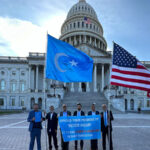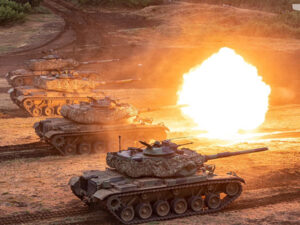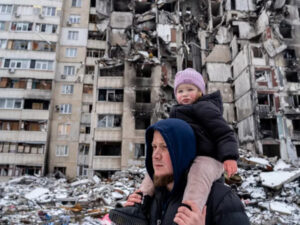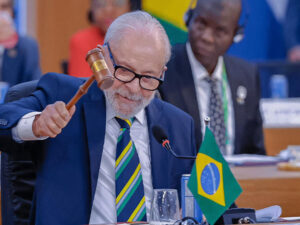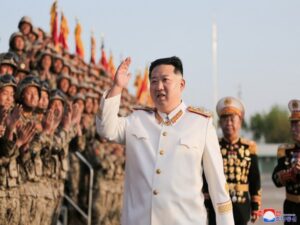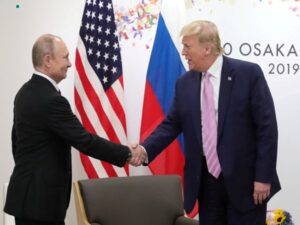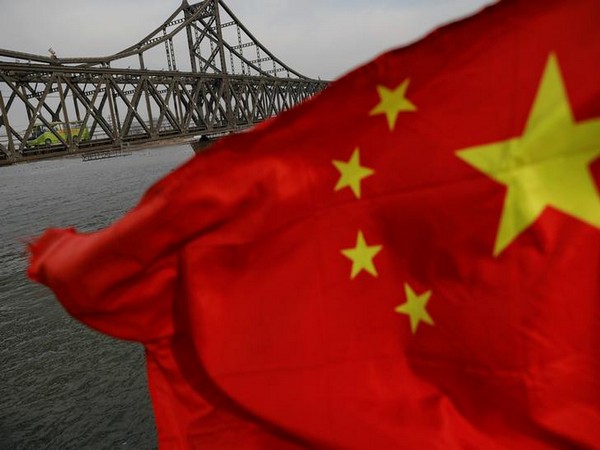
A Chinese flag is seen in front of the Friendship bridge over the Yalu River connecting the North Korean town of Sinuiju and Dandong in China's Liaoning Province, April 1, 2017. REUTERS/Damir Sagolj
Beijing [China], March 21 (ANI): Some countries like India have been rather guarded in their reaction to China’s President Xi Jinping-brokered ‘detente’ between two long-time Middle East adversaries — Saudi Arabia and Iran, both claimants to the leadership of the Muslim world. Beijing has territorial disputes on both land and sea with almost all its neighbours. And the Communist Big Brother has been trying to silence them with a combination of military and money power.
Put simply, the world is familiar with the face of an aggressive and expansionist China. It derives inspiration from its Imperial past, which, if it wants to relive it today, will require a major change in the maps of many countries. Frankly, China has become influential globally largely due to the economic strength it has acquired after the American MNCs shifted their manufacturing base to its economic zones. And used that heft to become a global military power.
Some digression into Middle East history and its conflicts are necessary to underscore the fragility of the tripartite peace agreement signed with much fanfare in Beijing. Sanctions – hit Iran needs friends wherever it can find them. Saudi Arabia too has been trying to turn a new leaf. It has, of late, become less orthodox, and has been battling with Islamists, who pose a bigger threat to the Kingdom than Iran.
In so many words, ending the rivalry between the co-religionists might have been inevitable.
Some kind of a secret understanding between Tehran and Beijing on nuclear cooperation also might have facilitated the detente. Aiding another friend stealthy to meet its nuclear ambitions would not sound unlikely but will fly in the face of China’s claim to be a genuinely minted broker for peace in all hotspots.
Relations between Saudi Arabia and Iran have been strained since the time of the Islamic Revolution in Iran in 1979. And became bitter in 2016 when mobs ransacked the Saudi embassy in Tehran and its consulate in Mashhad (the second-most populous city in Iran, about 900 kilometres from Tehran). The Iranian leaders had condemned these mob attacks, but Riyadh was not impressed.
This violence was a sequel to the execution of a Shia cleric, Sheikh Nimr in Riyadh. He was among the 47 persons beheaded on January 2, 2016, on terrorism charges. Over the years, the Shia-Sunni divide has become a matter of establishing supremacy in the wide Islamic world. While Saudi Arabia’s position as the leading light in the Sunni world is accepted, Shia Iran has also built up its clout in no small measure, particularly in the Arabic-speaking world.
Saudi Arabia and Iran have been fighting on opposing sides in Yemen, Syria, and Lebanon; both are in direct confrontation in countries like Nigeria, which has a strong Muslim presence and Pakistan, where the minority Shia community has been regularly attacked by Sunni fanatics.
In the post-Beijing deal, Riyadh and Tehran may start the process of opening their missions and appoint envoys over the next couple of months. That alone is no guarantee that tensions will not erupt again. Honestly, much will depend on whether the militant groups backed by Saudi Arabia and Iran lay down arms, and if so, how fast.
China has chosen to back Russia and is said to be sending arms to Moscow to fight the Ukrainians. Russia justifies its invasion as a war to stall Ukraine from becoming a NATO country. The world, however, views Russia as the aggressor and is not ready to condone active support Beijing extends to Moscow in this aggression.
Today, the most challenging issue before the world is the tension between Israel and Palestine. A real test for the success of Chinese peace diplomacy will be in resolving this conflict that has defied the solution for nearly seven decades. Also, nearer home in crisis-ridden Myanmar.
There is no denying, however, that a country that sides with a big nation that has attacked a smaller neighbour cannot claim any peace credentials, even accidentally. And to be called a peace broker is no more than an anachronism. (ANI)




